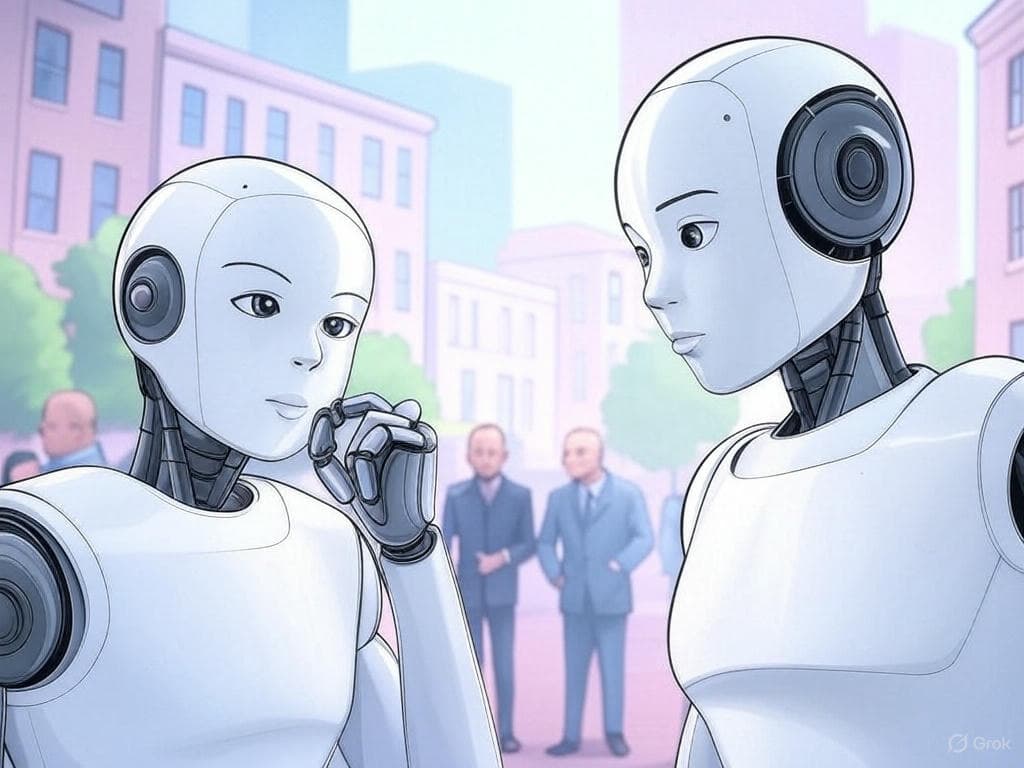Why Deep Thinking Unlocks New Knowledge
Some discoveries and inventions are so significant that they create entirely new fields of study. When the atom was split to harness nuclear power, the field of nuclear science and engineering was born. This led to further discoveries and innovations in nuclear energy...

Before zero was invented, number systems were based solely on natural numbers. These numbers were called "natural" because they appeared naturally in everyday life. Imagine seeing a tree full of honeybees. You start counting them and arrive at a specific number. But for counting to begin, at least one bee must be present. In this way, numbers were simply labels for quantities.
But what if there were no honeybees at all?
No one had considered this now seemingly obvious question. After all, does the absence of something even need to be counted?
However, acknowledging this absence and assigning it a value—by introducing the number zero (0)—was such a groundbreaking development that we can hardly imagine life without it. Without zero, fields like physics, mathematics, and computer science would never have reached their current significance.
The invention of zero was a moment of "new knowledge." Over centuries, brilliant minds have contributed to human progress by introducing entirely new domains of knowledge. Every invention, every breakthrough, and every revolutionary idea is essentially the creation of new knowledge.
Why Create New Knowledge?
Yes, it may sound like a silly question. Why go through the mental struggle of generating new ideas when life is already difficult enough?
Well, if everyone thought that way, we would have no internet, no space technology—nothing. We would still be living in the Dark Ages, with no advancements to make life easier. Creating new knowledge means developing new ways of thinking and uncovering hidden truths that optimize and transform how we approach problems.
For example, without an understanding of gravity, would we ever have developed cars that could travel hundreds of miles in mere hours—where ancient people once spent months on horseback to cover the same distance? That is the power of a single new idea.
The Chain of Knowledge Growth
New Discovery = New Knowledge ⇒ More New Discoveries
New Invention = New Knowledge ⇒ More New Inventions
Some discoveries and inventions are so significant that they create entirely new fields of study. When the atom was split to harness nuclear power, the field of nuclear science and engineering was born. This led to further discoveries and innovations in nuclear energy, revolutionizing how we solve problems that previously relied on inefficient power sources.
This is the power of new knowledge.
New knowledge, in short, gives us another key to unlock the secrets of the universe.
Thinking from Scratch
If we take the example of the invention of zero, we must ask:
"Why did no one think of it earlier?"
"Wasn't it obvious?"
The reality is that most great inventions only seem obvious in hindsight. Before they become part of accepted knowledge, they require first-principles thinking—a process of stripping away assumptions and questioning the very foundation of a problem.
This is what I call “thinking from scratch.”
For example, if I wanted to design a more efficient electric engine, I wouldn’t start by refining existing designs. Instead, I would question the entire premise:
Why weren’t electric engines the first choice in history?
Why did gasoline engines dominate?
What were the bottlenecks?
Through this process, I might discover that the real limitation wasn’t the engine—it was the battery technology. Early batteries had low energy density, making electric engines impractical. Thus, the real breakthrough wasn’t in engine design, but in improving battery technology.
This is exactly how we arrived at modern electric cars—which now outperform many gasoline engines.
This type of deep, foundational thinking is what led Einstein and Max Planck to question reality itself, eventually discovering principles so complex that even most PhD students struggle to grasp quantum fluctuations! (lol!)
Insight vs. Noise
Not all deep thinking leads to meaningful discoveries. Many ideas remain stuck on paper for decades because they turn out to be noise rather than true insights.
The difference between Noise and Insight is simple:
An Insight gives rise to a new field of study or accelerates progress in an existing one.
Noise leads nowhere—it may be interesting, but it lacks practical impact.
This is why, after deep thinking, one must apply a critical filter:
"Does this idea open up new knowledge that will fuel further discoveries?"
Most breakthroughs don’t happen immediately. Many ideas must first be explored and discarded before a truly valuable insight emerges.
What Are the Steps?
There are no steps. No path. No roadmap.
Only intuition and deep curiosity about a subject.
This is not just philosophical talk—it is a practical process that can be applied to real problems.
For example, suppose I want to optimize an algorithm for my mobile app. Instead of blindly tweaking code, I start by asking:
"What is the slowest component that is limiting performance?"
Now this question becomes the first the first step to a potential new insight in boosting the performance.
The next step is obvious to find the answer to first question that popped. In pursuit of this answer, we unlock the next question and then the next question and the spiral ends in a completely new place we weren’t considering before.
So we can write:
Problem → Find the first question → Find Answer → Leads to Second Question → Unlock new Problem → Repeat
And this loop repeats unless a new insight is unlocked.
Final Words
Every major scientific breakthrough, invention, or discovery was the result of relentless first-principles thinking—questioning assumptions and refusing to accept the status quo.
The key to unlocking new knowledge is to keep following the chain of questions without giving up at the first challenge.
I hope my words ignite curiosity in readers.
All mistakes are mine. All ideas are mutual.
